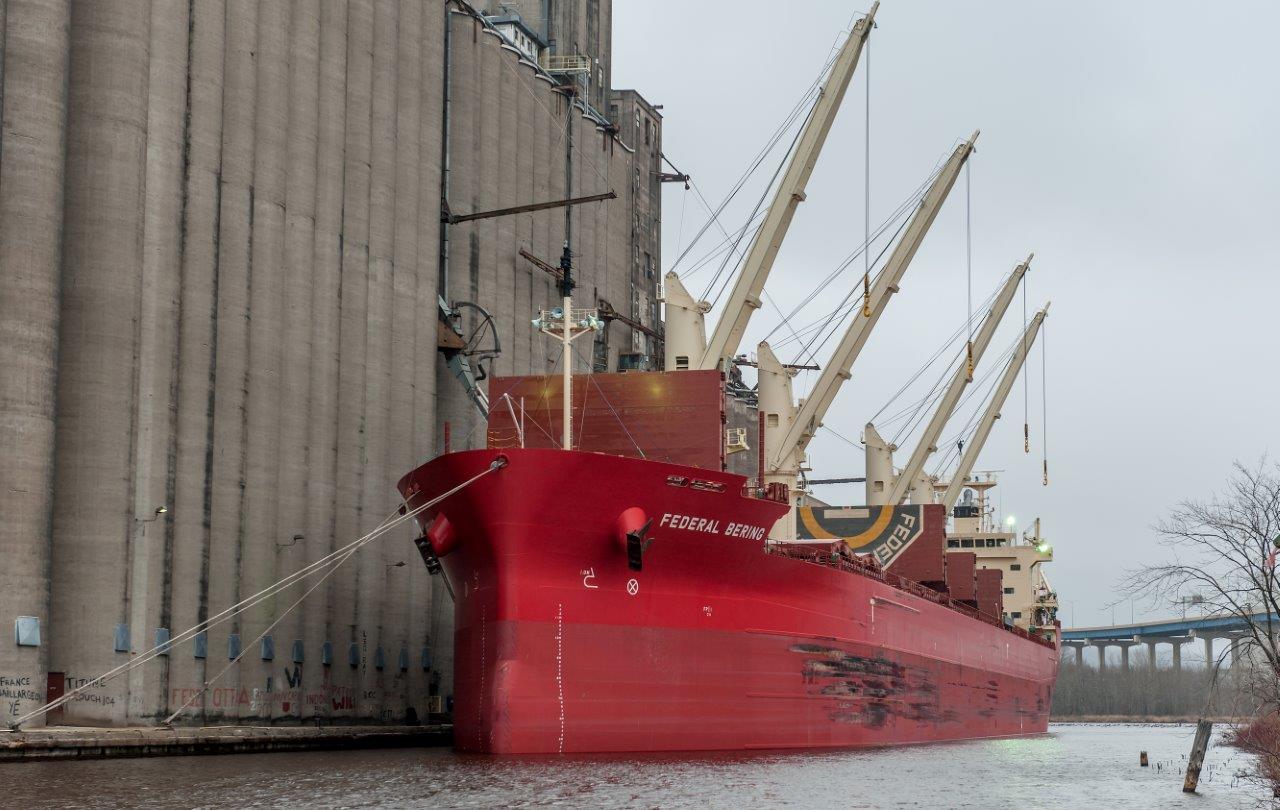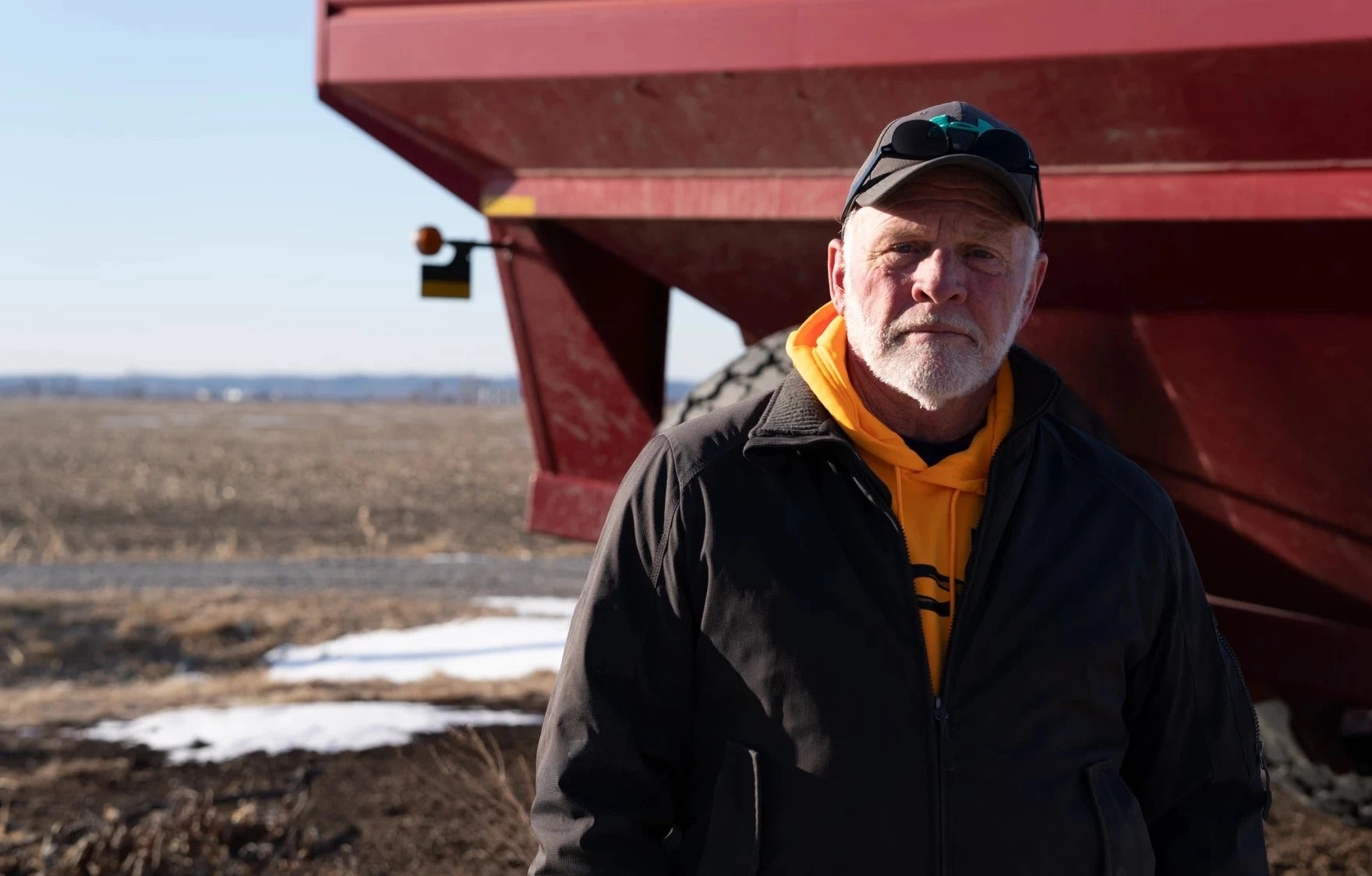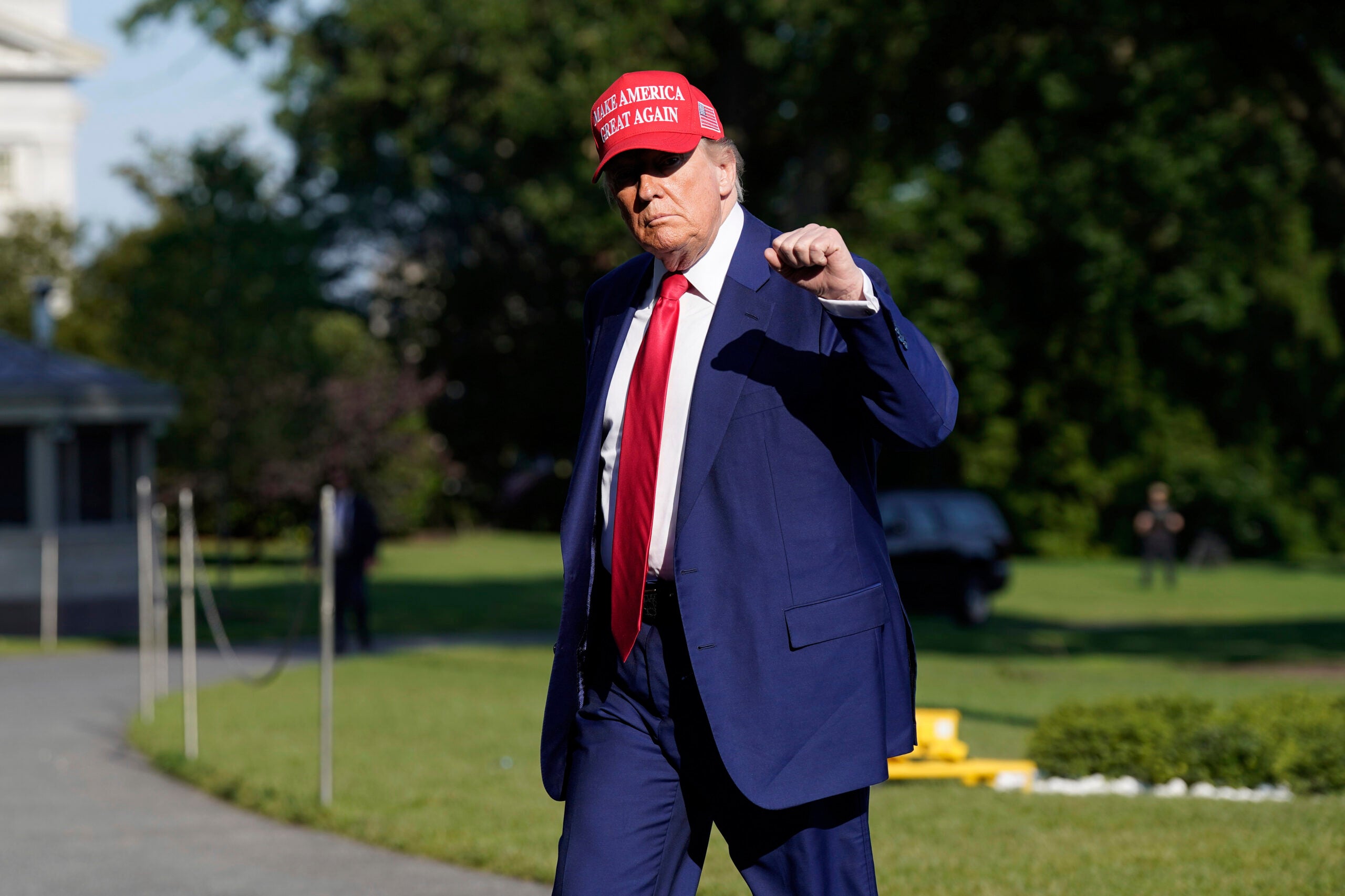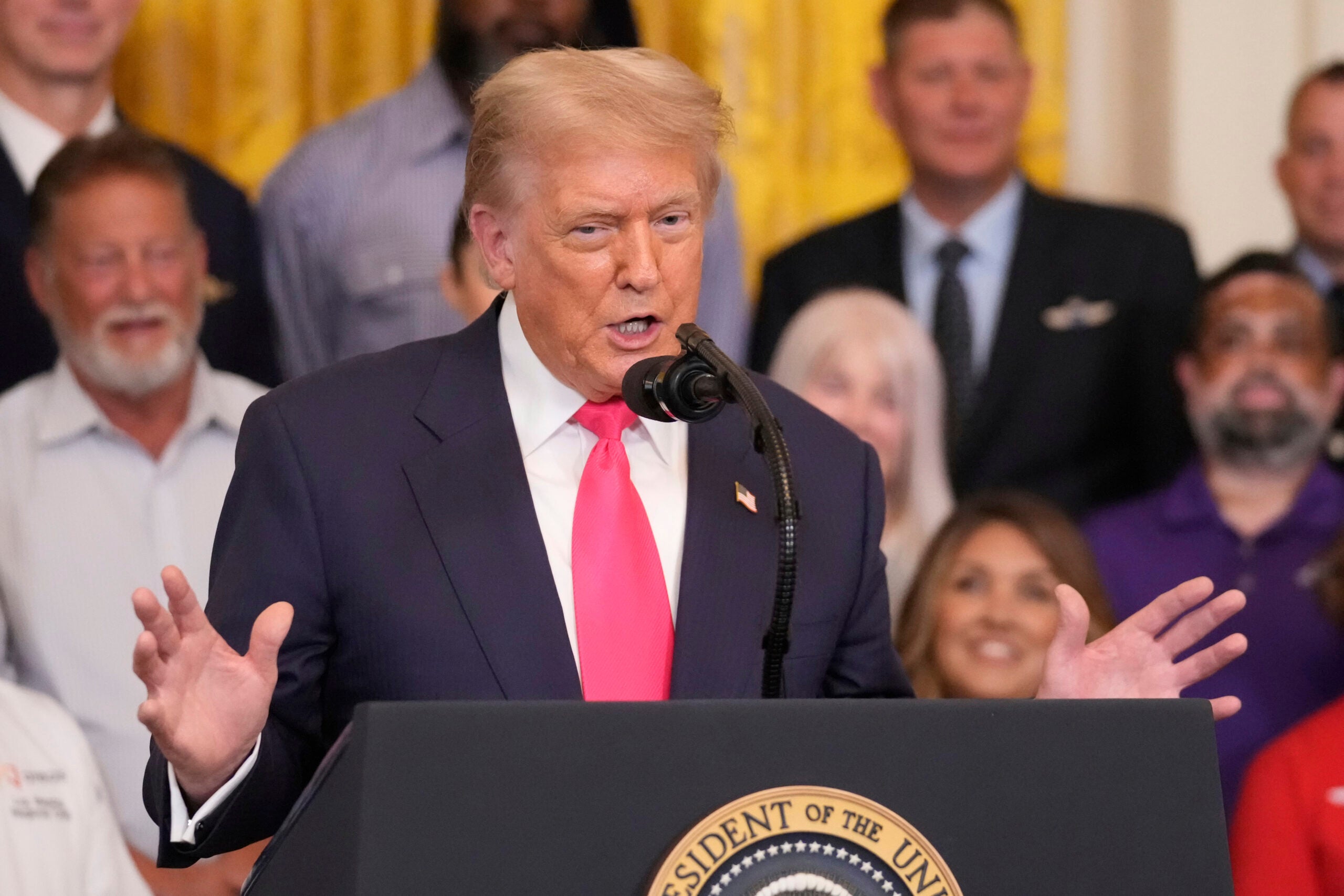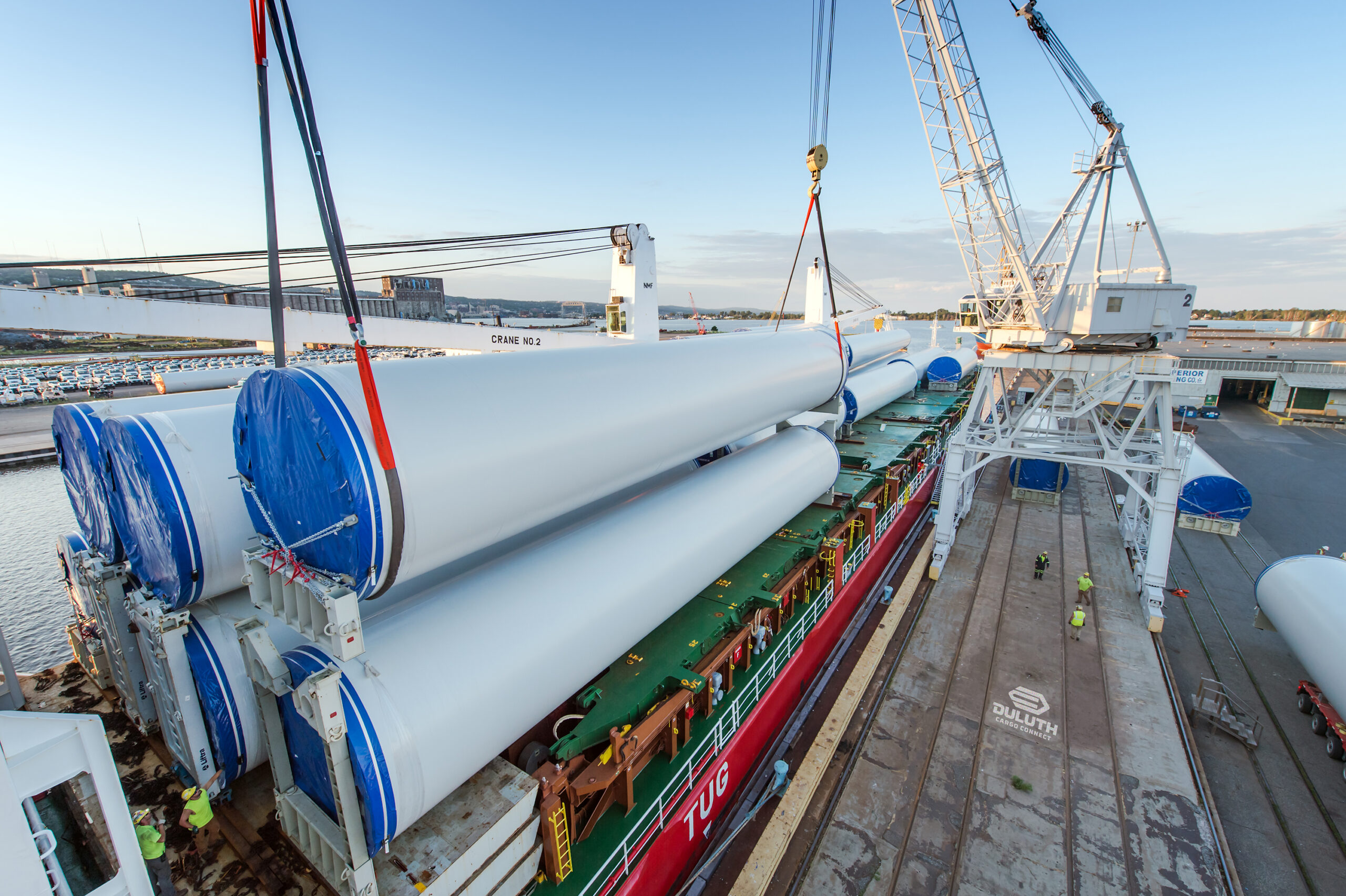Northern Wisconsin is well-known as a strategic shipping hub, with the Port of Duluth-Superior being the furthest inland seaport in the United States.
Along with the ore boats that largely serve the Great Lakes, it handles imports and exports from around the world. There are also local and regional companies that deal with goods coming and going overseas.
Shifts in trade and tariff policies expected in the incoming second Trump administration may pose challenges to those arrangements but they may also create opportunities.
News with a little more humanity
WPR’s “Wisconsin Today” newsletter keeps you connected to the state you love without feeling overwhelmed. No paywall. No agenda. No corporate filter.
“The Great Lakes ports, including the Port of Duluth-Superior, present opportunities our new administration can embrace to better support manufacturing in the interior of the country,” said Chris Wojtowicz, international trade consultant at the Small Business Development Center of the University of Wisconsin-Superior.
He spoke with WPR’s Robin Washington on “Morning Edition” about opportunities and challenges with the upcoming policies, as well as President-elect Trump’s selection of Sean Duffy, the area’s former Congressman, as the U.S. Secretary of Transportation.
This interview has been edited for clarity and brevity.
Robin Washington: How much international trade are local businesses doing currently, and what are some of the main sectors?
Chris Wojtowicz: Wisconsin had a phenomenal year last year, with about $20 billion of goods and services being exported. Those major products were agricultural goods, technical goods and manufactured goods. Some of the big names are Harley-Davidson and Mercury Marine. There are also a lot of forest products being created in northern Wisconsin that are exported.
Some of them are companies you wouldn’t expect. There’s a company in Rice Lake that controls about 60-70 percent of the world’s scale industry. They make scales ranging from those that can weigh a locomotive all the way down to things that you would find in a biological lab.
RW: Which of these sectors do you think might be most affected by the new administration’s trade policies?
CW: All of them. We benefited from some lessons in the COVID era regarding the nightmare of transportation and logistics that surrounded our ports back then. There were backups everywhere from Seattle to Los Angeles and on the East Coast from New York and New Jersey all the way around the bend to Houston.
And then we started to realize that we had opportunities — kind of like a relief valve, if you will — with the Great Lakes ports, including Duluth-Superior. And businesses started to look at them rather than putting goods in containers on trains at an extremely high cost.
RW: What new international opportunities do you think might emerge during this time?
CW: I see this as a really big opportunity for the incoming administration to capitalize on their goal of increasing domestic manufacturing. There’s a company in Chippewa Falls that loaded quite a few containers with kidney beans at the Port of Duluth-Superior going to European markets.
To me, the writing’s on the wall is that this shipping route is something that’s going to attract industry with lower transportation costs and increased efficiency to export or import their goods.
RW: Are imports likely to be as affected?
CW: There are foreign companies that are investing and expanding in the United States. There is a lot of direct investment from Italian companies into Green Bay, for example.
The city of Superior has been working on creating a Foreign Trade Zone that would help importing companies mitigate some of the duties and tariffs.
So, let’s say I’m importing parts to make a lawn mower, and those parts have a 5 or 10 percent duty rate. I’ll be able to bring those into the Foreign Trade Zone, and assemble them with parts manufactured here in the United States, and at the end of the day, I’ve made a lawn mower.
When that lawn mower leaves that Foreign Trade Zone, it has a zero percent duty rate. The city of Superior is in talks with a consultant to get that started.
RW: Sean Duffy, the former Wisconsin 7th District Congressman, has been tapped by President elect-Trump to head the U.S. Department of Transportation. I believe the department generates probably the largest number of government contracts second only to the Defense Department. Do you think our area will benefit from having one of his own heading it?
CW: I hope so. I mean, he’s from here. I really hope that Sean Duffy takes advantage of the awesome opportunities that Wisconsin has.
If you have an idea about something in northern Wisconsin you think we should talk about on “Morning Edition,” send it to us at northern@wpr.org.

